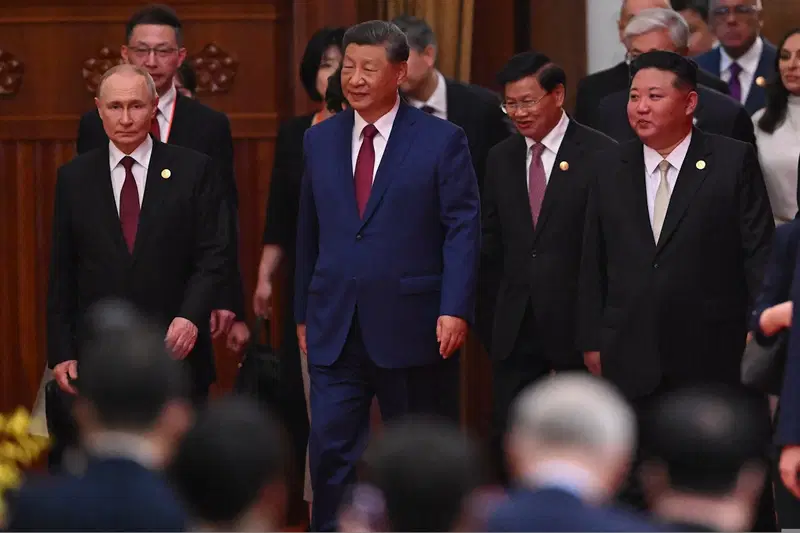Breaking News
EU’s Kaja Kallas: Xi, Putin, Kim Alliance a Direct Challenge to Global Order
EU foreign policy chief Kaja Kallas warns that the joint appearance of Xi Jinping, Vladimir Putin, and Kim Jong Un in Beijing signals a direct challenge to the rules-based international system, urging Europe to assert its geopolitical role.

Here’s a clear rephrasing of the story with headline, while preserving the key facts and quotes:
Xi, Putin, Kim Alliance a ‘Direct Challenge’ to Global Order – EU’s Kallas
European Union foreign policy chief, Kaja Kallas, has warned that the joint appearance of Chinese President Xi Jinping, Russian President Vladimir Putin, and North Korea’s Kim Jong Un at a major parade in Beijing represents a direct threat to the international rules-based order.
Speaking to journalists on Wednesday, Kallas said:
“Looking at President Xi standing alongside the leaders of Russia, Iran, North Korea in Beijing today, these aren’t just anti-Western optics, this is a direct challenge to the international system built on rules. It’s not just symbolic. Russia’s war in Ukraine is being sustained by Chinese support. These are realities that Europe needs to confront now.”
The three leaders took part in a ceremony marking the end of World War II, with Xi flanked by Putin and Kim as they walked a red carpet in Tiananmen Square. In an unprecedented moment, Xi shook hands with both men and engaged in conversation.
In a subsequent address, Kallas cautioned that the world is witnessing deliberate efforts to reshape global power structures:
“We are experiencing deliberate attempts to change the international order. China and Russia also speak of leading changes together not seen in a hundred years and the revision of the global security order.”
She stressed that Europe must step up its response to the shifting geopolitical landscape:
“A new global order is in the making. It will not be shaped without Europe, but it will be shaped by what Europe is willing to do, whether we are willing to recognise the need for Europe to play a geopolitical role.”










